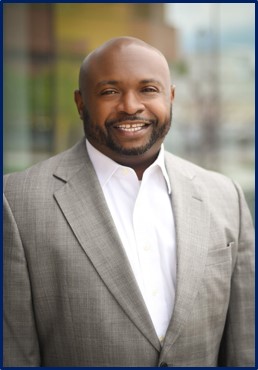Cost: FREE
Contact Hours: 1.25 (Certificate of Attendance)
Target Audience: Professionals or organizations; Community members (members of a community or consumers); Students or educators (including faculty, administrators, supervisors, etc.)
Developed for: SAMHSA Region 3
COURSE DESCRIPTION
Identifying triggers is essential at the beginning of the recovery process, but more is to be revealed. Comprehensive support systems, including counseling, employment assistance, and accessible housing, can alleviate some of the stress and contribute to a successful recovery. Sustainable support is a counterbalance to stress and the stigmatization of being in recovery. As we unpack the benefits of support systems, we will also discuss the tools for prevention and how to move forward in recovery.
LEARNING OBJECTIVES
By the end of this webinar, participants will be able to:
- Recognize the role of comprehensive support systems in alleviating stress during recovery
- Investigate various types of support systems and how they can act as preventive measures in dealing with stress and the association of stigma.
- Examine tools and techniques and address stress and triggers in a recovery context.
- Develop strategies to build and maintain long-term recovery and apply the knowledge gained to support others.
PRESENTER
 Demetrie Garner, CPRS, as a Peer Recovery Specialist, has been presented with the unique opportunity of working in the largest Emergency Department in the state of Maryland. This has given him the vantage point to encounter minority disparities. A lack of health communication targeted to African-Americans and other minorities help further this disparity. As a Peer Recovery Specialist, the visible cracks of systemic inadequacies in health care and its access garners attention and policy changes in patients with substance use disorders. Having the experience in active addiction abusing opiates, cocaine, and alcohol for 26 years with countless relapses fostered the experience needed to help others in active addiction. Finding recovery over the last 2 and 1/2 years while working in the recovery field has given Demetrie a unique perspective in recidivism and retention throughout the process of recovery. With the help of the God of his understanding (Jesus Christ), Narcotics Anonymous, and healthy relationships, the pathway of a daily reprieve from active addiction is now possible. Continuous work through pastoral licensed counseling has unlocked the acceptance of childhood molestation and recovery from trauma. After 21 years since Demetrie decided to drop out of high school in the 11th grade, education seemed to become more important to obtain. If he wants to help individuals who look like himself and suffer from trauma and active addiction, then higher education has to be pursued. While at the University of Maryland at Baltimore County, currently a sophomore, Demetrie’s interest in studies is in the social science of public health. Future involvement with research is being pursued with patients that have wait times in emergency rooms with substance use disorders. Previous research this past semester has examined minorities hesitancy to receive Covid vaccinations.
Demetrie Garner, CPRS, as a Peer Recovery Specialist, has been presented with the unique opportunity of working in the largest Emergency Department in the state of Maryland. This has given him the vantage point to encounter minority disparities. A lack of health communication targeted to African-Americans and other minorities help further this disparity. As a Peer Recovery Specialist, the visible cracks of systemic inadequacies in health care and its access garners attention and policy changes in patients with substance use disorders. Having the experience in active addiction abusing opiates, cocaine, and alcohol for 26 years with countless relapses fostered the experience needed to help others in active addiction. Finding recovery over the last 2 and 1/2 years while working in the recovery field has given Demetrie a unique perspective in recidivism and retention throughout the process of recovery. With the help of the God of his understanding (Jesus Christ), Narcotics Anonymous, and healthy relationships, the pathway of a daily reprieve from active addiction is now possible. Continuous work through pastoral licensed counseling has unlocked the acceptance of childhood molestation and recovery from trauma. After 21 years since Demetrie decided to drop out of high school in the 11th grade, education seemed to become more important to obtain. If he wants to help individuals who look like himself and suffer from trauma and active addiction, then higher education has to be pursued. While at the University of Maryland at Baltimore County, currently a sophomore, Demetrie’s interest in studies is in the social science of public health. Future involvement with research is being pursued with patients that have wait times in emergency rooms with substance use disorders. Previous research this past semester has examined minorities hesitancy to receive Covid vaccinations.
*CONTACT HOUR ELIGIBILITY
In order to be eligible for the contact hours and/or certificate of attendance, you must join the live webinar in the Zoom platform.
If you are having issues accessing the room or the application at the time of the event: Please email [email protected] at the start of the webinar so that we can assist you.
ACCOMMODATIONS
If you are in need of any special accommodations, please notify the Central East PTTC Webinar Team three weeks in advance of the event, or as soon as possible, by emailing [email protected].


